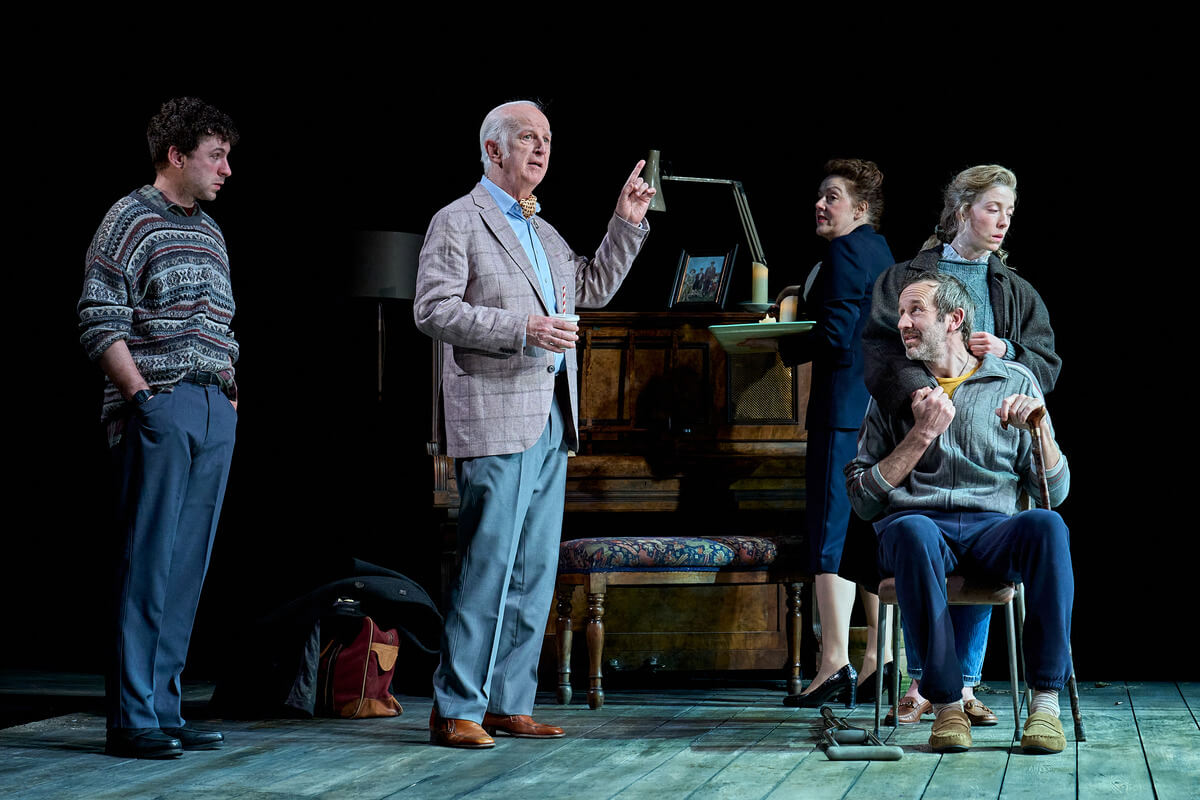The play follows a twentysomething London everywoman who wants a partner, and kids. Her dating journey leads her to the enigmatic X, whom she falls physically, viscerally in love with.
Her world is turned upside down when she discovers X is married and she’s what she never wanted to be: a homewrecker. All this while she’s struggling to come to terms with losing her mother to multiple sclerosis. A potential lethal cocktail that threatens to overwhelm her sanity and her very will to live.
Jessica Butcher’s writing, soundtracked by Lucas on piano, articulates the complex feeling of her character’s feeling polluted by her relationship with this man, the sensation of feeling disconnected from her womb and the rest of her body as a result, and of oscillating rapidly from being fine to being overwhelmed by modern life.
When Butcher can’t find the words for what her character is feeling, the music and song (also composed by Lucas) takes over. This is lovely, and gives Butcher the freedom to counterpoint the beauty of the music with her self-deprecating humour.
To start with, it’s (possibly deliberately?) a little unsure of itself, with Butcher jumping around the stage dorkily and asking questions about whether you can recycle the tops of yoghurt pots. But some super monologues and the quality of the songs mean the piece deepens significantly once the pressure cooker of the story gets simmering. The movement is economical, sometimes beautiful in its simplicity.
It’s at its best when it lets the squaring-feminism-with-dating stuff by the wayside and delves deep into the character’s emotional landscape. Dramaturgically their format is also a great way to play with the politics of representation - we actually don’t know whether this person is a black woman or a white woman we actually don’t know much about this person at all. I would have liked to see them use this to raise more questions, or interrogate the possibilities of playfulness between the two performers - perhaps even for them to switch permanently, or start contradicting each other? A play where there’s no clear conflict between the two people onstage is tricky.
But equally, there’s a strength to its quality of restraint. And it keeps the audience rapt, nodding along at moments that resonated with them; we’re so on board with her journey that we spontaneously applaud at moments when our character stands up for herself and scores a point against the nefarious X.
It also does an excellent job of being heavy without being harrowing; no easy balancing act.
Sparks is a superior example of its type of show: understated, honest and poetic, whilst also almost universally accessible, as long as a play containing some serious expressions of grief and body dysmorphia is the right choice for you. A play for people who like songs, which is practically everyone.

 Sparks follows a woman who’s not played by one person, but two; one of whom (Jessica Butcher) speaks in words, the other (Anoushka Lucas) in music and song, aided by her keyboard.
Sparks follows a woman who’s not played by one person, but two; one of whom (Jessica Butcher) speaks in words, the other (Anoushka Lucas) in music and song, aided by her keyboard.



 Following its run at Edinburgh Fringe and Dublin Theatre Festival, Karen Cogan’s solo show DRIP FEED arrives at Soho Theatre in London. Taking the audiences through the past and present of the city of Cork, heartbreak and obsessions, loneliness and longings, Cogan proves to be both a fantastic writer and a performer.
Following its run at Edinburgh Fringe and Dublin Theatre Festival, Karen Cogan’s solo show DRIP FEED arrives at Soho Theatre in London. Taking the audiences through the past and present of the city of Cork, heartbreak and obsessions, loneliness and longings, Cogan proves to be both a fantastic writer and a performer.